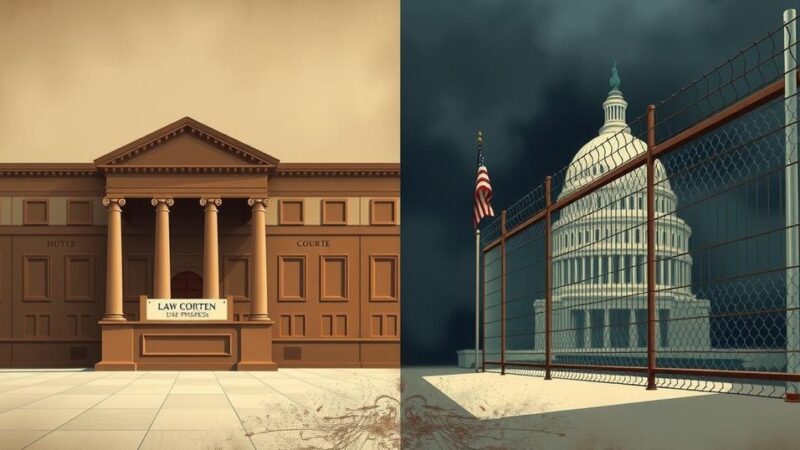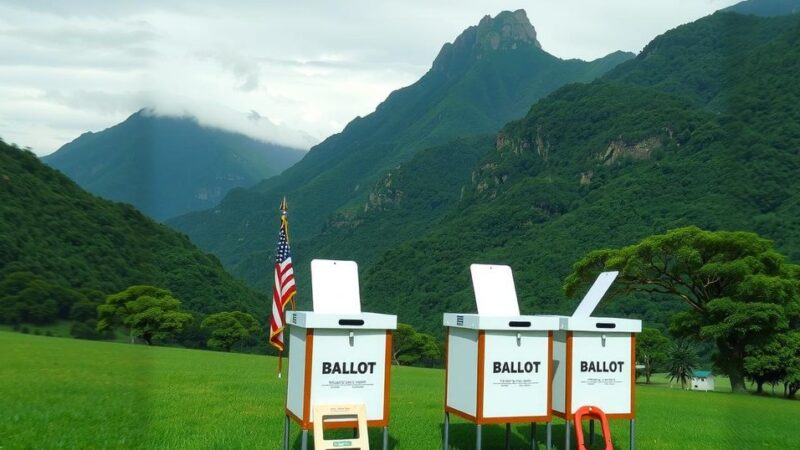Ecuador’s President Daniel Noboa has alleged irregularities in the first round of presidential elections, despite authoritative denials. The OAS confirmed the results aligned with its monitoring. Both candidates expressed distrust in the electoral process, while observers emphasized the election’s transparency. Political analysts highlight a troubling decline in democratic norms amidst rising violence in the country.
Ecuador’s President, Daniel Noboa, has raised unfounded allegations of “irregularities” in the first round of the presidential election, despite his narrow lead over leftist opponent Luisa González. He claimed during a social media interview that discrepancies in vote counting had occurred, even suggesting that armed groups coerced voters into supporting his rival.
The Organization of American States (OAS), which monitored the elections, firmly rejected these claims, stating that the results were consistent with their quick count and within acceptable margins of error. The OAS emphasized that it had encountered no evidence to suggest widespread irregularities that could potentially impact the election outcome.
Additionally, Ecuador’s electoral agency reaffirmed its dedication to conducting fair and transparent elections shortly after Noboa’s interview. González, echoing Noboa’s sentiments, had previously expressed distrust in the electoral body without providing any substantiating evidence for her concerns.
The European Union’s election observation mission characterized the election as “transparent, well-organized, and peaceful,” countering any allegations of fraud during the electoral process, while not naming either candidate. The organization noted that misinformation about election fraud proliferated, particularly in the campaign’s closing stages.
Security analyst Jean Paul Pinto pointed out the troubling decline of democratic norms in Ecuador. He remarked that Noboa has frequently leveraged executive decrees for significant decisions, including military deployment to tackle gang-related violence and the construction of new prisons. Pinto further noted that Noboa’s controversial orders, such as the forcible arrest of a former vice president at the Mexican embassy, reflect a concerning disregard for diplomatic protocols.
Pinto suggested that González’s allegations may stem from her team’s expectation of victory. As crime ravages the nation, particularly in provinces where Noboa’s support is weak, the violence is linked to turf battles among drug cartels.
Pinto stated that a significant portion of González’s voters do not support her personally; rather, they are motivated by opposition to Noboa’s candidacy. He decried Noboa’s assertions about armed groups influencing voters as “dangerous,” implying loss of sovereignty and endorsing perceptions of Ecuador as a potential “narco state.”
In essence, Ecuador’s political landscape remains fraught with tension as President Daniel Noboa contests the recent election results. Despite his allegations of fraud, electoral observers have affirmed the integrity of the elections. As the country grapples with rising crime and political uncertainty, the implications of Noboa’s unsubstantiated claims pose significant risks to Ecuador’s democratic stability.
Original Source: edition.cnn.com






